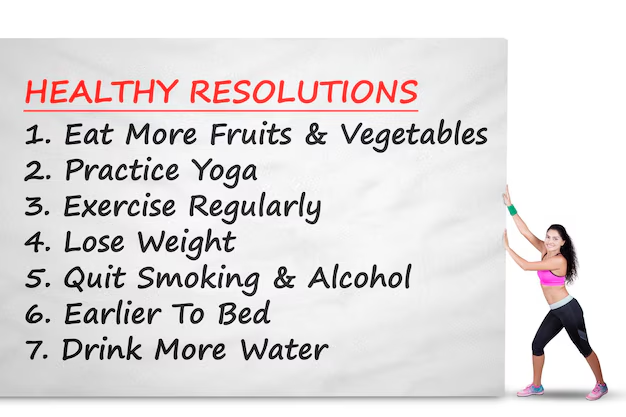
In our fast-paced world, it’s easy to overlook the importance of maintaining both physical and mental well-being. However, achieving a balanced and healthy life is crucial for overall success, happiness, and longevity. Whether you’re looking to improve your fitness levels, boost your mental clarity, or simply feel better day-to-day, adopting healthy habits is the key. Here are some top health tips to help you build a stronger body and mind:
1. Prioritize Regular Exercise
Exercise is essential for physical and mental health. Not only does it strengthen your body, but it also boosts your mood and cognitive function. Aim for at least 30 minutes of moderate-intensity exercise most days of the week. Incorporate a mix of cardiovascular activities, strength training, and flexibility exercises to keep your routine well-rounded. Activities like walking, swimming, cycling, or yoga can improve endurance, reduce stress, and enhance your mental clarity.
2. Nourish Your Body with Whole Foods
What you eat directly affects how you feel. A balanced diet rich in whole, nutrient-dense foods fuels both your body and brain. Focus on eating a variety of fruits, vegetables, lean proteins, whole grains, and healthy fats. Foods like leafy greens, fatty fish (rich in omega-3s), nuts, and berries are known to promote heart health and cognitive function. Limit processed foods, added sugars, and unhealthy fats, as they can contribute to inflammation and energy crashes.
3. Hydrate for Optimal Function
Water is the foundation of all bodily functions. Dehydration can lead to fatigue, poor concentration, and even mood swings. Aim to drink at least eight 8-ounce glasses of water a day, and more if you’re physically active. Hydrating with water, herbal teas, or infused water can keep your energy levels stable and help improve mental clarity.
4. Get Sufficient Sleep
Sleep plays a critical role in both physical and mental health. During sleep, your body repairs and rejuvenates, while your brain processes and consolidates memories. Lack of sleep can impair cognitive function, hinder recovery, and contribute to a weakened immune system. Aim for 7-9 hours of quality sleep each night. Create a calming bedtime routine, limit screen time before bed, and ensure your sleep environment is comfortable and dark.
5. Practice Mindfulness and Stress Management
Chronic stress can take a toll on your physical health, leading to higher blood pressure, poor digestion, and a weakened immune system. Managing stress is crucial for overall well-being. Incorporating mindfulness practices, such as meditation, deep breathing exercises, or journaling, can significantly reduce stress levels. These techniques also enhance emotional regulation and mental clarity. Take time each day to engage in activities that help you relax and unwind.
6. Strengthen Your Social Connections
Human connection is an often-overlooked aspect of well-being. Positive social interactions and strong relationships provide emotional support, reduce stress, and promote a sense of belonging. Make time for friends, family, and community. Engage in meaningful conversations, participate in group activities, or volunteer to strengthen your social bonds. Social well-being is just as important as physical health in achieving a balanced life.
7. Challenge Your Mind
Keeping your mind sharp is just as important as maintaining your physical strength. Engage in activities that challenge your cognitive abilities, such as reading, puzzles, or learning new skills. Continuous mental stimulation can enhance memory, problem-solving, and overall brain health. Try to incorporate activities that push your creativity and intellectual capacity to keep your mind active and engaged.
8. Incorporate Regular Self-Care
Self-care isn’t a luxury—it’s a necessity for maintaining a healthy mind and body. Whether it’s taking a warm bath, getting a massage, practicing yoga, or simply enjoying a quiet moment of solitude, self-care helps restore balance and reduce the toll of daily stress. Make time for activities that make you feel good and allow you to recharge mentally and physically.
9. Stay Positive and Cultivate Gratitude
Your mindset can have a profound impact on your health. A positive attitude can boost your immune system, improve your mental well-being, and foster resilience in the face of challenges. Practice gratitude daily by reflecting on things you’re thankful for. This simple habit can shift your focus toward positivity and create a more optimistic outlook on life.
10. Set Realistic Goals
Lastly, setting realistic and achievable goals can keep you motivated and help you stay on track toward better health. Whether it’s exercising regularly, eating healthier, or reducing stress, setting small, attainable goals allows you to track progress and stay committed to your well-being journey. Celebrate milestones along the way to keep your momentum going.
Conclusion
Achieving a stronger body and mind requires a combination of healthy habits, positive thinking, and consistent effort. By prioritizing regular exercise, nourishing your body, managing stress, and focusing on self-care, you can create a healthier and more balanced life. Start by integrating these tips into your daily routine, and remember that small changes can lead to big improvements in your overall well-being. Your health is an investment—take care of it today for a better tomorrow!












